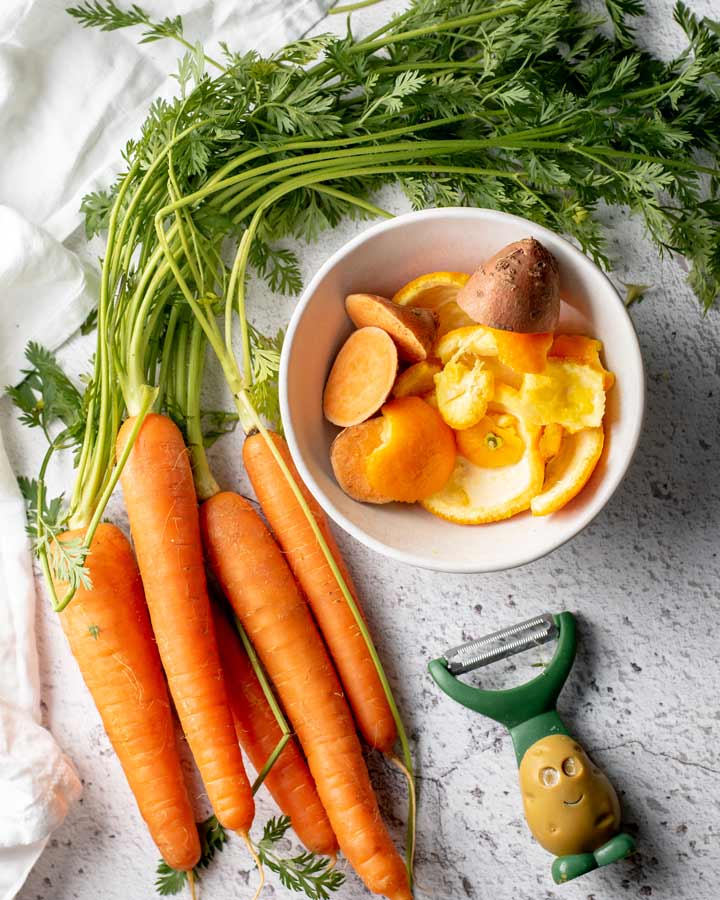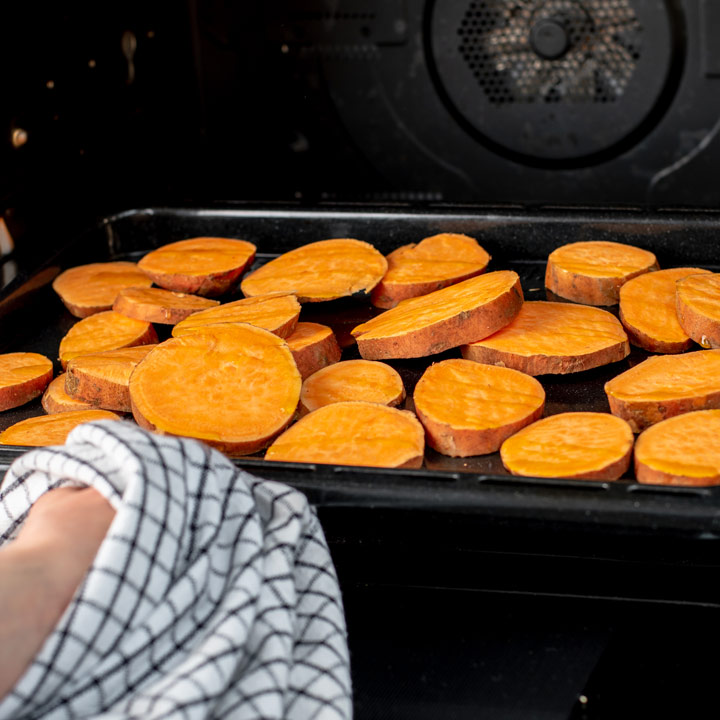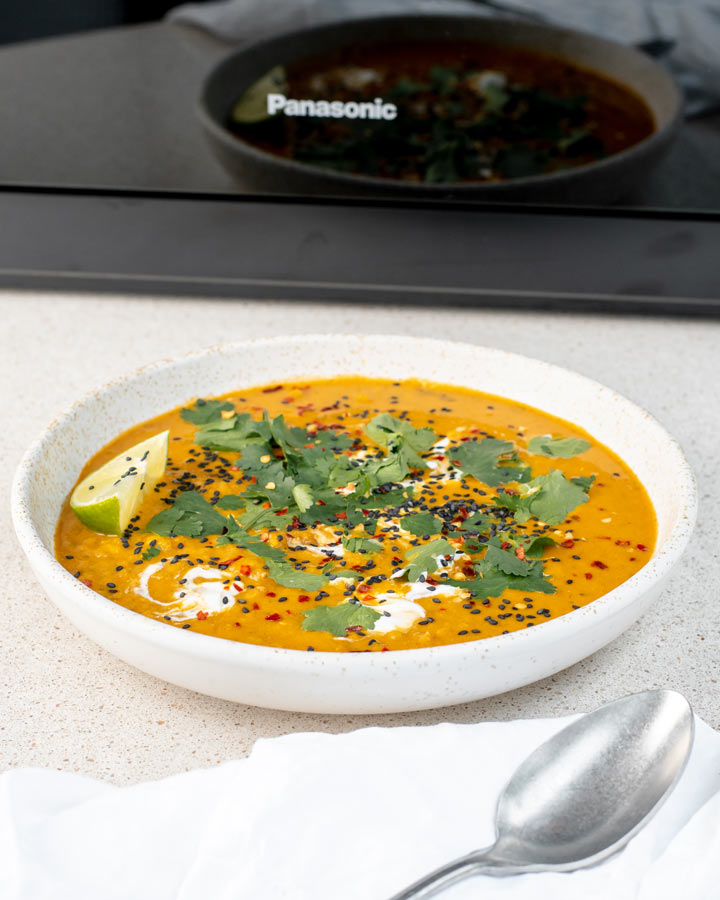Did you know that as much as 30% of greenhouse gas emissions around the world are due to the production of food (1)? This can have significant impacts on global warming and climate change. By making some simple tweaks to our eating, shopping and cooking habits, not only can we minimise our carbon footprint but we can benefit our health too.
Here are 4 simple steps to enjoy a more sustainable diet for a greener and healthier planet…
1. Try these tips to reduce food waste
As much as one-third of food produced globally is wasted, and it’s been estimated that up to 70% of this waste takes place at the household level (2,3,). What’s more, 65% of the food we throw away at home comes from fruit and veg, with only 1% from fat and sugar which may have implications for our health (4). This high level of food waste can have subsequent effects on our planet, taking its toll on land, water use and carbon emissions. However, there’s plenty we can do to reduce food waste at home. For example, planning our meals and shopping in our kitchen first can help to reduce unnecessary purchases. Upon doing a food shop, why not move the oldest food to the front of the fridge so it’s not forgotten about? Avoid storing highly perishable foods such as milk in the warmest part of the fridge such as the door as it can speed up food spoilage.
There are also plenty of innovative ways to enjoy leftovers and food parts which we may otherwise deem as inedible. Why not make homemade almond milk with the Panasonic slow juicer, and use the pulp to create these delicious granola bars? The pulp of carrot juice can also be used to make this super moist yet flavoursome no-waste carrot cake. Using the brine from a can of chickpeas can make an excellent vegan substitute for egg whites. While veggie scraps such as broccoli stalks and carrot ends can be used to make stock.
2. Consider energy-efficient cooking methods
Why not take sustainable eating to the next level, by engaging in more sustainable cooking methods? Compared to conventional ovens, you can slash energy usage and cooking time by up to 50% when using a Panasonic Inverter Combi Microwave Oven (5). This is due to being able to cook with several functions simultaneously including convection, steam and grill alongside microwave power, with the Inverter technology (6). What’s more, you can steam your food to perfection using a fraction of the water compared to regular steaming methods. If you want fast, delicious yet healthy food, then you’ll be pleased to know that the smaller cavity of a Combi Oven and Air Fryer takes less time to heat which is a more eco-friendly way to cook.
3. Enjoy more plant protein
Red meat, especially beef and lamb has the largest dietary impact on the environment. In fact, when it comes to food, red meat contributes to the most greenhouse gas emissions followed by dairy (7). Not only does this have implications for the environment, but too much red and processed meat within the diet such as bacon, sausages, ham and salami may increase the risk of colon cancer and heart disease (8). For the health of the planet and our own, it’s recommended to consume no more than 500g a week or 70g per day of red and processed meat (8). This equates to a maximum of 1.5 sausages or 2 rashers of bacon a day.
Instead, why not enjoy more plant protein which not only decreases environmental burden but has benefits for our health too? Try soya (tofu, tempeh, soy milk, soy yoghurt), Quorn, pulses, nuts and seeds. There are a wealth of delicious meat-free meals to choose from such as veggie chillies, curries, soups, stews, lentil bolognese, and even bean burgers. Whilst there are concerns about soya foods contributing to Amazon rainforest deforestation, most of this soya is produced for animal feed. Around 95% of soya intended for human consumption is produced in other regions such as North America, Europe and Asia, and can still make up part of a more environmentally friendly diet (1).
4. Eat seasonal and more sustainably sourced foods
Enjoying seasonal and locally produced food can help to reduce the time and distance between farm to plate. This cuts carbon emissions, whilst supporting local farmers. Opting for loose fruit and veg not only reduces the amount of packaging required but is often cheaper too. What’s more, using Panasonic’s slow juicer at home means you can juice whole fruit and veggies which cuts down on food and packaging waste!
When eating for the planet, it can be handy to get clued up on logos to identify foods from more sustainable sources. For example, when buying fish, look out for the Marine Stewardship Council (MSC) logo for wild fish and the Aquaculture Stewardship Council (ASC) logo for farmed fish. This enables us to enjoy some fish within our diet whilst helping to reduce additional damage to the ecosystem.
References:
1.https://www.bda.uk.com/resource/one-blue-dot.html
2.https://wrap.org.uk/taking-action/food-drink/actions/action-on-food-waste
3.https://www.ons.gov.uk/economy/environmentalaccounts/articles/areviewofhouseholdbehaviourinrelationtofoodwasterecyclingenergyuseandairtravel/2021-11-01
4.https://pubmed.ncbi.nlm.nih.gov/31552260/
5.https://www.panasonic.com/uk/consumer/home-appliances-learn/home-appliances/cooking-time-energy-saving.html
6.https://www.panasonic.com/uk/consumer/home-appliances-learn/home-appliances/inverter-technology-the-new-way-of-cooking.html
7.https://www.bda.uk.com/static/539e2268-7991-4d24-b9ee867c1b2808fc/a1283104-a0dd-476b-bda723452ae93870/one%20blue%20dot%20reference%20guide.pdf
8.https://www.wcrf-uk.org/preventing-cancer/what-can-increase-your-risk-of-cancer/red-and-processed-meat-and-cancer-risk/
























